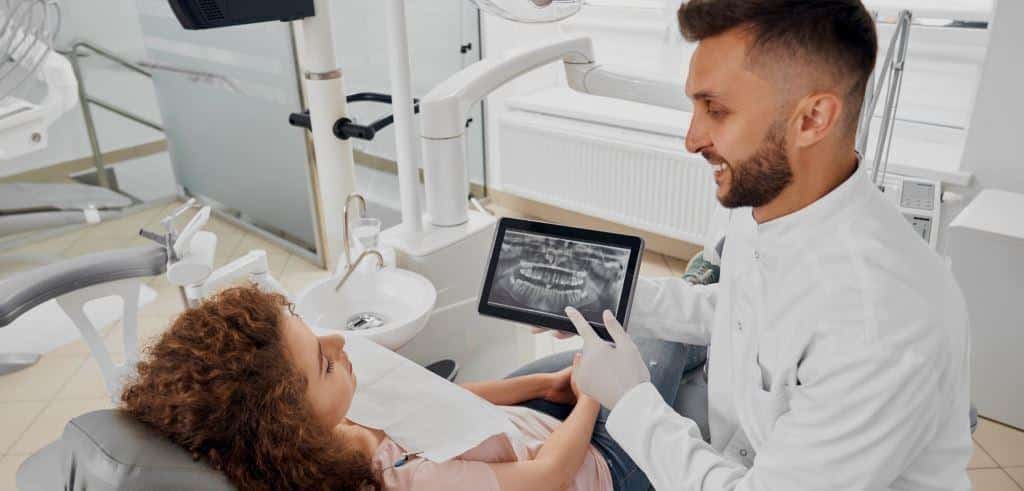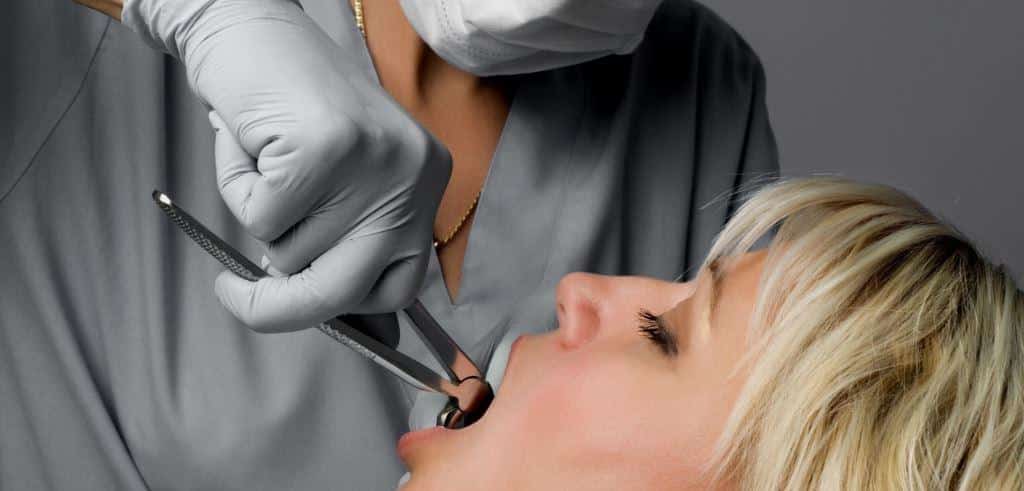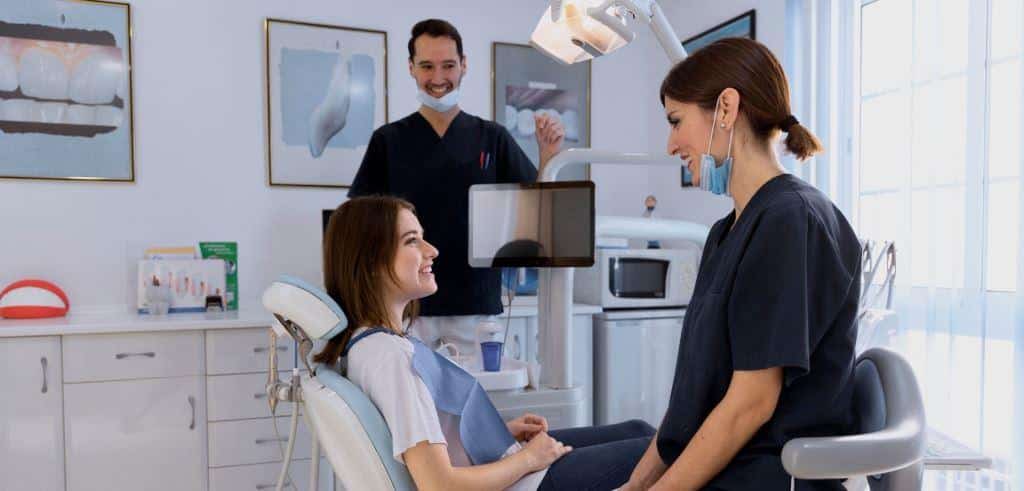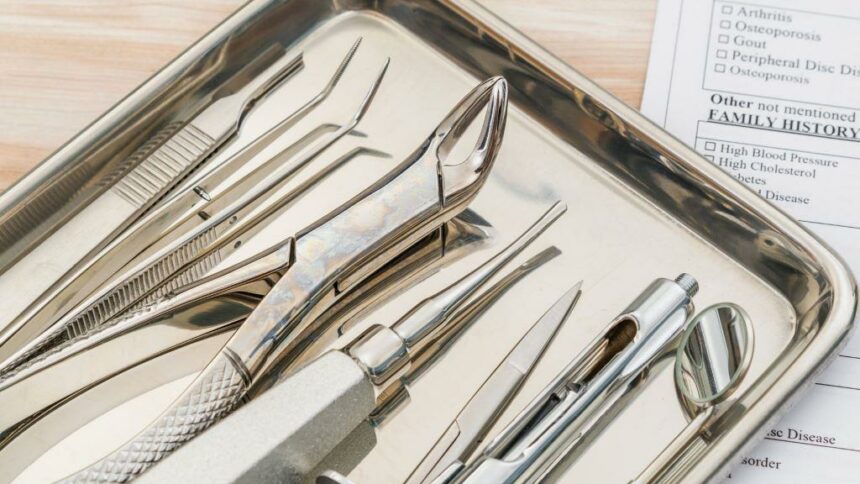A wisdom tooth should be removed if it is crowding the remaining teeth, has erupted incorrectly or is badly damaged by decay. Unfortunately, this procedure is often much more difficult than a simple tooth extraction. The problem is the very location of the wisdom tooth; in addition, many times its roots are stuck in the bone or are very close to the nerves. This is when surgical removal of eights is necessary.
Wisdom tooth - to remove or not to remove?
Eight teeth most often appear between the ages of 17 and 25, but they can also erupt at a much later age, or not appear in the mouth at all.
It is a fact that wisdom teeth break down more frequently. This is, among other things, a consequence of their shape and position, which makes it much more difficult to clean them thoroughly. However, it is a myth that is often repeated that a wisdom tooth always has to be removed. We wrote more on this subject in the material "Problematic eighths - facts and myths about wisdom teeth".
In that case, what are the indications for surgical removal of eights?
Firstly, advanced caries. In this case, root canal treatment is not always effective and, in addition, comes at a cost to the patient.
Another indication for the removal of eights is orthodontic problems. A wisdom tooth can cause crowding of the remaining teeth, which has serious consequences. These include not only crooked teethbut also significantly increases the risk of infection and caries.
But that's not all!
Inflammation of the gums is also an indication for the removal of the eights. Accumulated bacteria can lead to infection of the body, but you can read more about this in the material "Decayed teeth a danger to the health of the whole body".
Abnormal eruption of an eighth can also cause damage to the roots of other molars.

Surgical removal of eights - before surgery
Before you even sit down in the dentist's chair, it is necessary to take an X-ray (pantomogram), which gives a full picture not only of your teeth, but also of your jaw, mandible and temporomandibular joints. Sometimes the wisdom tooth is located in the bone, additionally in a horizontal position. This is why the photo is so important; based on it, the dentist assesses the difficulty of the procedure and is also able to plan it.
There may also be times when laboratory tests will need to be carried out, including a blood test to determine clotting levels. All this is to minimise possible complications.

Surgical removal of eights
Surgical removal of eights is carried out under local anaesthesia. However, it may happen that the oral surgeon decides to use full anaesthesia. This is most often used for children, people with disabilities or those whose fear of the procedure almost borders on panic.
The procedure itself is not a pleasant one. Depending on the position of the tooth and whether it is already erupted or not, an incision in the mucous membrane may be necessary. The roots of the tooth must then be dislodged, and finally the eighth is removed using surgical forceps.
In the case where the wisdom tooth is partially in the bone, the procedure is more complicated. It is necessary to make an incision in the mucosa, but also to remove part of the bone that is above the tooth. The roots are then separated and removed, as is the entire tooth.
Typically, surgical removal of an eighth graft also requires the placement of several sutures to close the resulting wound.

How much does it cost to remove a wisdom tooth?
The price of surgical removal of an eighth tooth depends on the position of the tooth and therefore the compilation of the procedure itself. In our practice it starts from £210, the price includes the placement and removal of sutures.
Importantly, you do not have to pay the whole amount at once. Thanks to the instalment system, you can spread it over 0% instalments for the first 12 months (7.9% for repayments over 12 months). IMPORTANT: The system is 100% secure, regulated by the Financial Conduct Authority (FCA number 619628) and can be used above £350.
For more information, see our article "Teeth on credit: dental treatment on hire purchase".

Surgical removal of eights - after the procedure
On average, the alveolus should close by a week. During this time, we recommend applying cold compresses to relieve the pain. On the other hand, give up coffee, tea and alcoholic beverages, and you should not smoke during this time. All of the above may cause problems with wound healing or inflammation. We also recommend that you refrain from intense physical exercise.
After wisdom tooth extraction, gum pain is a typical symptom. The discomfort can last up to a week, and you can relieve it with painkillers. And if the pain increases or you develop a fever, it is best to see your dentist right away.
If you have additional questions, call or write to us.
We also invite you to follow our channel on Facebook.

